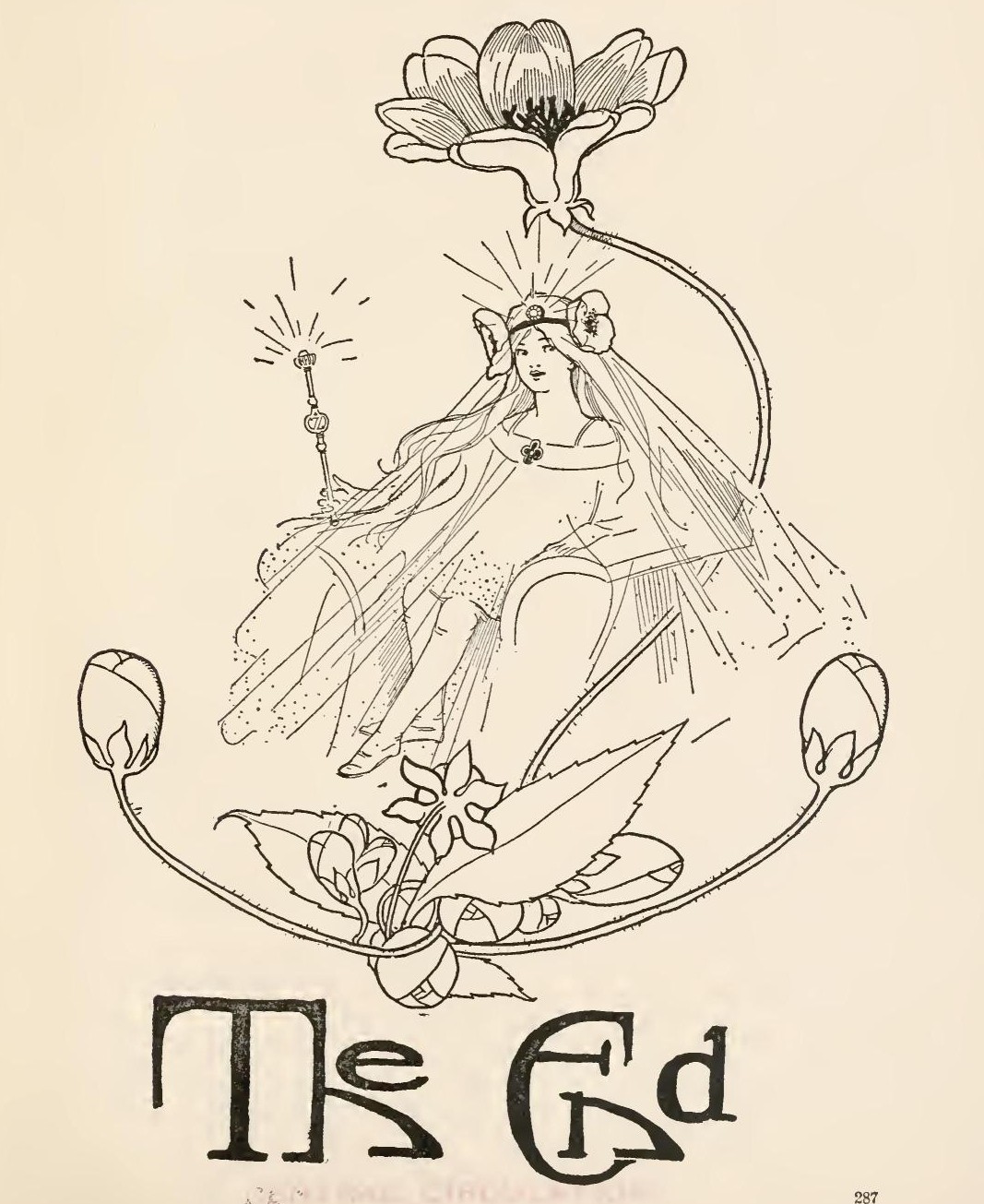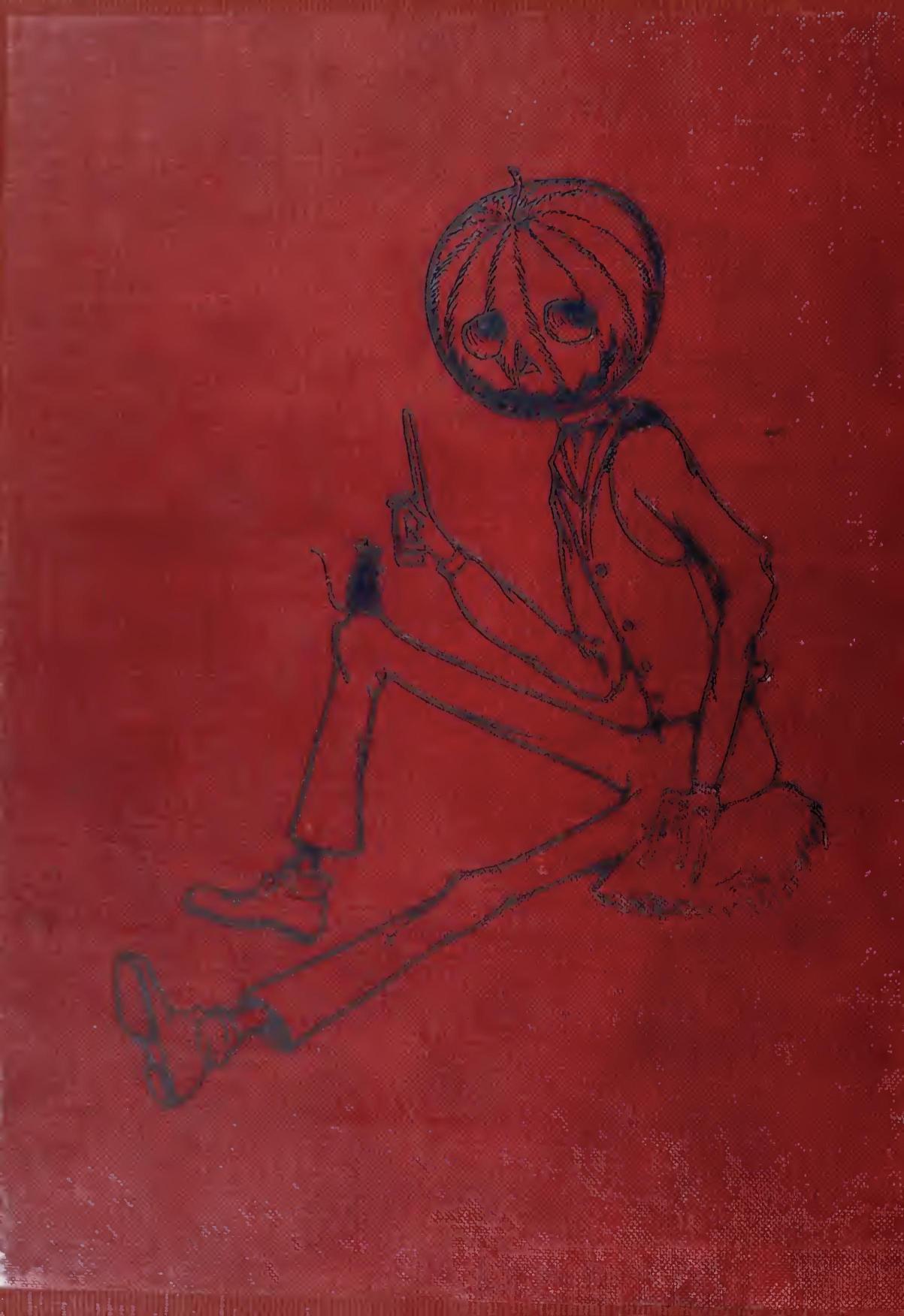The Riches of Content
When the wonderful tidings reached the ears of Queen Jinjur—how Mombi the Witch had been captured; how she had confessed her crime to Glinda; and how the long-lost Princess Ozma had been discovered in no less a personage than the boy Tip—she wept real tears of grief and despair.
“To think,” she moaned, “that after having ruled as Queen, and lived in a palace, I must go back to scrubbing floors and churning butter again! It is too horrible to think of! I will never consent!”
So when her soldiers, who spent most of their time making fudge in the palace kitchens, counseled Jinjur to resist, she listened to their foolish prattle and sent a sharp defiance to Glinda the Good and the Princess Ozma. The result was a declaration of war, and the very next day Glinda marched upon the Emerald City with pennants flying and bands playing, and a forest of shining spears, sparkling brightly beneath the sun’s rays.
But when it came to the walls this brave assembly made a sudden halt; for Jinjur had closed and barred every gateway, and the walls of the Emerald City were builded high and thick with many blocks of green marble. Finding her advance thus baffled, Glinda bent her brows in deep thought, while the Woggle-Bug said, in his most positive tone:
“We must lay siege to the city, and starve it into submission. It is the only thing we can do.”
“Not so,” answered the Scarecrow. “We still have the Gump, and the Gump can still fly”
The Sorceress turned quickly at this speech, and her face now wore a bright smile.
“You are right,” she exclaimed, “and certainly have reason to be proud of your brains. Let us go to the Gump at once!”
So they passed through the ranks of the army until they came to the place, near the Scarecrow’s tent, where the Gump lay. Glinda and Princess Ozma mounted first, and sat upon the sofas. Then the Scarecrow and his friends climbed aboard, and still there was room for a Captain and three soldiers, which Glinda considered sufficient for a guard.
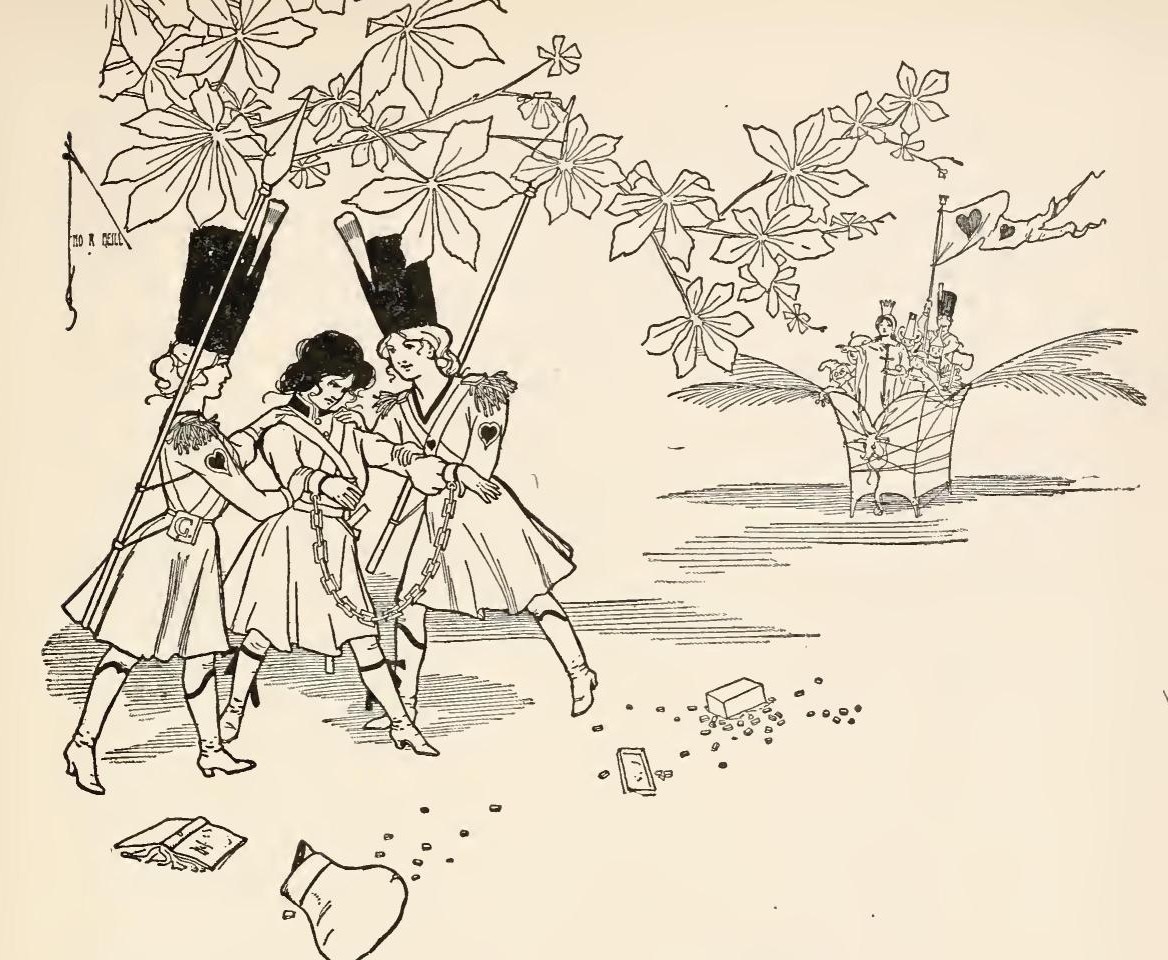
Now, at a word from the Princess, the queer Thing they had called the Gump flopped its palm-leaf wings and rose into the air, carrying the party of adventurers high above the walls. They hovered over the palace, and soon perceived Jinjur reclining in a hammock in the courtyard, where she was comfortably reading a novel with a green cover and eating green chocolates, confident that the walls would protect her from her enemies. Obeying a quick command, the Gump alighted safely in this very courtyard, and before Jinjur had time to do more than scream, the Captain and three soldiers leaped out and made the former Queen a prisoner, locking strong chains upon both her wrists.
That act really ended the war; for the Army of Revolt submitted as soon as they knew Jinjur to be a captive, and the Captain marched in safety through the streets and up to the gates of the city, which she threw wide open. Then the bands played their most stirring music while Glinda’s army marched into the city, and heralds proclaimed the conquest of the audacious Jinjur and the accession of the beautiful Princess Ozma to the throne of her royal ancestors.
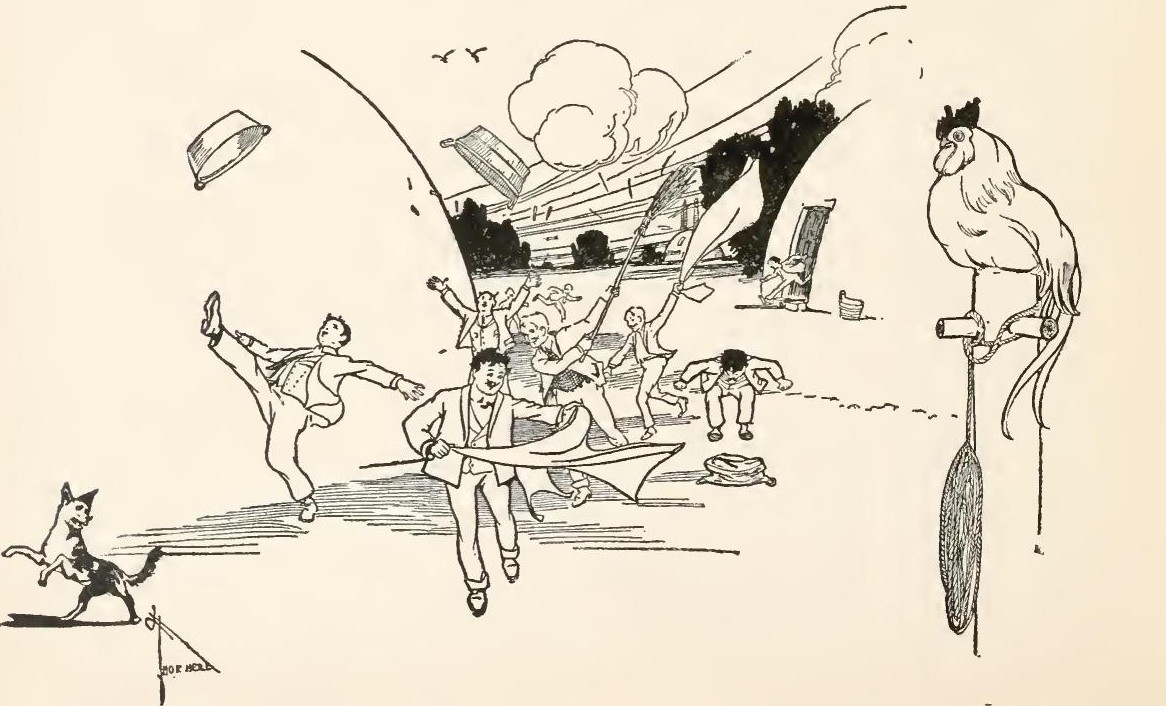
At once the men of the Emerald City cast off their aprons. And it is said that the women were so tired eating of their husbands’ cooking that they all hailed the conquest of Jinjur with Joy. Certain it is that, rushing one and all to the kitchens of their houses, the good wives prepared so delicious a feast for the weary men that harmony was immediately restored in every family.
Ozma’s first act was to oblige the Army of Revolt to return to her every emerald or other gem stolen from the public streets and buildings; and so great was the number of precious stones picked from their settings by these vain girls, that every one of the royal jewelers worked steadily for more than a month to replace them in their settings.
Meanwhile the Army of Revolt was disbanded and the girls sent home to their mothers. On promise of good behavior Jinjur was likewise released.
Ozma made the loveliest Queen the Emerald City had ever known; and, although she was so young and inexperienced, she ruled her people with wisdom and Justice. For Glinda gave her good advice on all occasions; and the Woggle-Bug, who was appointed to the important post of Public Educator, was quite helpful to Ozma when her royal duties grew perplexing.
The girl, in her gratitude to the Gump for its services, offered the creature any reward it might name.
“Then,” replied the Gump, “please take me to pieces. I did not wish to be brought to life, and I am greatly ashamed of my conglomerate personality. Once I was a monarch of the forest, as my antlers fully prove; but now, in my present upholstered condition of servitude, I am compelled to fly through the air—my legs being of no use to me whatever. Therefore I beg to be dispersed.”
So Ozma ordered the Gump taken apart. The antlered head was again hung over the mantle-piece in the hall, and the sofas were untied and placed in the reception parlors. The broom tail resumed its accustomed duties in the kitchen, and finally, the Scarecrow replaced all the clotheslines and ropes on the pegs from which he had taken them on the eventful day when the Thing was constructed.
You might think that was the end of the Gump; and so it was, as a flying-machine. But the head over the mantle-piece continued to talk whenever it took a notion to do so, and it frequently startled, with its abrupt questions, the people who waited in the hall for an audience with the Queen.
The Saw-Horse, being Ozma’s personal property, was tenderly cared for; and often she rode the queer creature along the streets of the Emerald City. She had its wooden legs shod with gold, to keep them from wearing out, and the tinkle of these golden shoes upon the pavement always filled the Queen’s subjects with awe as they thought upon this evidence of her magical powers.
“The Wonderful Wizard was never so wonderful as Queen Ozma,” the people said to one another, in whispers; “for he claimed to do many things he could not do; whereas our new Queen does many things no one would ever expect her to accomplish.”
Jack Pumpkinhead remained with Ozma to the end of his days; and he did not spoil as soon as he had feared, although he always remained as stupid as ever. The Woggle-Bug tried to teach him several arts and sciences; but Jack was so poor a student that any attempt to educate him was soon abandoned.
After Glinda’s army had marched back home, and peace was restored to the Emerald City, the Tin Woodman announced his intention to return to his own Kingdom of the Winkies.
“It isn’t a very big Kingdom,” said he to Ozma, “but for that very reason it is easier to rule; and I have called myself an Emperor because I am an Absolute Monarch, and no one interferes in any way with my conduct of public or personal affairs. When I get home I shall have a new coat of nickel plate; for I have become somewhat marred and scratched lately; and then I shall be glad to have you pay me a visit.”
“Thank you,” replied Ozma. “Some day I may accept the invitation. But what is to become of the Scarecrow?”
“I shall return with my friend the Tin Woodman,” said the stuffed one, seriously. “We have decided never to be parted in the future.”
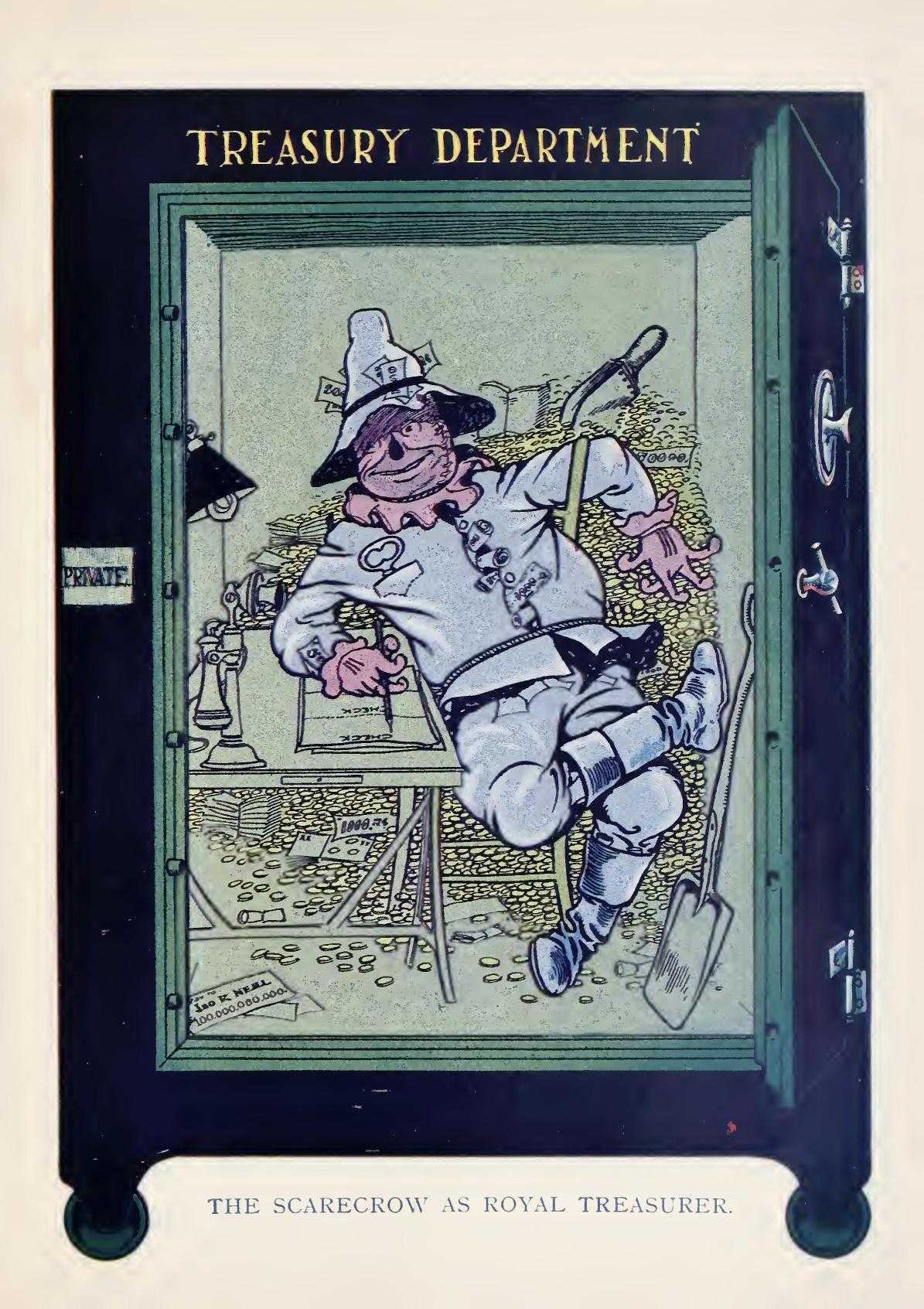
“And I have made the Scarecrow my Royal Treasurer,” explained the Tin Woodman. “For it has occurred to me that it is a good thing to have a Royal Treasurer who is made of money. What do you think?”
“I think,” said the little Queen, smiling, “that your friend must be the richest man in all the world.”
“I am,” returned the Scarecrow. “but not on account of my money. For I consider brains far superior to money, in every way. You may have noticed that if one has money without brains, he cannot use it to advantage; but if one has brains without money, they will enable him to live comfortably to the end of his days.”
“At the same time,” declared the Tin Woodman, “you must acknowledge that a good heart is a thing that brains can not create, and that money can not buy. Perhaps, after all, it is I who am the richest man in all the world.”
“You are both rich, my friends,” said Ozma, gently; “and your riches are the only riches worth having—the riches of content!”
